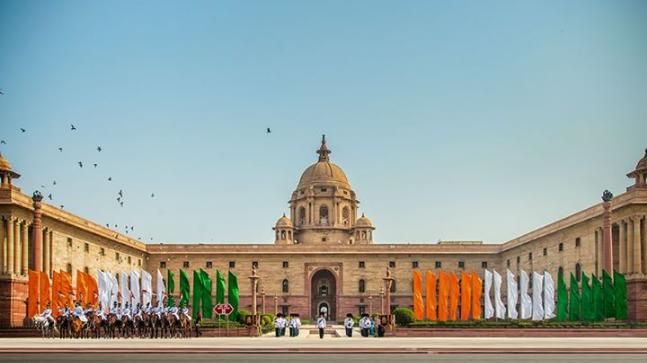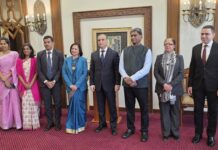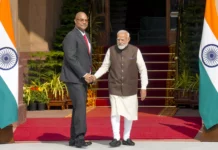NEW DELHI: India on Tuesday slammed the US government panel on religious freedom for its statement on the Citizenship (Amendment) Bill, saying it was “regrettable” that the entity, which has no locus stand on the issue, has chosen to be guided by its “prejudices and biases” on the matter.
In a strongly-worded statement against the bill, passed by Lok Sabha on Monday, the US Commission on International Religious Freedom (USCIRF) said “the CAB is a dangerous turn in the wrong direction” and asked the US administration to consider imposing sanctions against Home Minister Amit Shah and other principal Indian leadership if the bill with the “religious criterion” is enacted into a law.
Rejecting comments by the USCIRF, External Affairs Ministry Spokesperson Raveesh Kumar said the position articulated by the commission was not surprising given its past record.
“It is, however, regrettable that the body has chosen to be guided only by its prejudices and biases on a matter on which it clearly has little knowledge and no locus standi,” he asserted.
Around a decade back, the USCIRF had also favoured denying of tourist visa to Narendra Modi, the then Chief Minister of Gujarat.
In its statement, the USCIRF said, “CAB is a dangerous turn in the wrong direction; it runs counter to India’s rich history of secular pluralism and the Indian Constitution, which guarantees equality before the law regardless of faith”, adding that it was deeply troubled over the passage of the bill in Lok Sabha.
The MEA spokesperson asserted that every nation, including the US, has the right to enumerate and validate its citizenry, and to exercise the prerogative through various policies.
Asserting that the statement on the bill is “neither accurate nor warranted”, Kumar said the Bill provides expedited consideration for Indian citizenship to persecuted religious minorities already in India from certain contiguous countries.
He said the proposed legislation seeks to address their current difficulties and meet their basic human rights and that such an initiative should not be criticized by those who are genuinely committed to religious freedom.
“The CAB does not affect the existing avenues available to all communities interested in seeking citizenship from doing so. The recent record of granting such citizenship would bear out the Government of India’s objectivity in that regard,” Kumar said.
The bill seeks to provide Indian citizenship to non-Muslims from Pakistan, Bangladesh and Afghanistan escaping religious persecution. The opposition parties have come down hard the government on the proposed legislation.
“Neither the CAB nor the National Register of Citizens (NRC) process seeks to strip citizenship from any Indian citizen of any faith. Suggestions to that effect are motivated and unjustified,” the MEA spokesperson said.
The NRC has been prepared in Assam to identify Indian citizens living in the state since March 24, 1971 or before.
Out of 3.3 crore applicants, over 19 lakh people were excluded from the final NRC which was published around three-and-half months back.
The NRC issue has also drew sharp criticism from various quarters including human rights organisations. PTI







